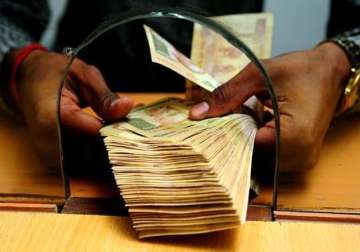Bad loans: Why the call for making top bank bosses accountable deserves merit
Chennai: Rising bad loans at government-owned banks running into several crores has caught the country's attention. The Reserve Bank has stepped in and the top court has raised some serious questions.There are two big problem

Chennai: Rising bad loans at government-owned banks running into several crores has caught the country's attention. The Reserve Bank has stepped in and the top court has raised some serious questions.
There are two big problem areas that stand out amid this pressing issue. First and foremost is the long rope that banks provide to big defaulters. The second, quite the contrary, is the harassment that banks met out to small borrowers.
The bad loan mess that India is reeling under threatens not just the lenders, but even the economy. An RTI response by the RBI has revealed that state-owned banks have written off a total of Rs 1.14 lakh crore of bad loans between 2013 and 2015. Terming the write-offs as a big fraud, the Supreme Court recently ordered the Reserve Bank to share with it names of all defaulters who owe over Rs 500 crore and continue to lead “lavish lifestyle”.
“People are owing thousands of crore to the public banks… it is a big fraud. Top ten public sector banks have written off Rs 40,000 crore alone in 2015. Public financial institutions are lending money despite knowing no returns. RBI is supposed to keep a watch on these banks. What are you doing about it?” a bench headed by Chief JusticeT S Thakur asked Solicitor General Ranjit Kumar.
While banks may have their own reasons behind such discriminatory behaviour, there is a growing clamour within these banks to make top executives accountable to rid future chances of the entire mess. There are reasons why these calls, though stemming from unions which are often criticised for holding the management to ransom, merit some consideration.
But first let's take a look at the discriminatory behaviour adopted by banks when it comes to loan defaulters. On one hand are the likes of Kingfisher former boss Vijay Mallya, whose loan defaults (approximately Rs 7,000 crore) have not seen the hot pursuit it deserved by banks. In fact, the long rope provided has led to a situation where the SBI-led consortium of banks may be able to extract only a fraction of the amount lent to Mallya's airline.
IDBI (a government-owned financial services company), one of the lenders part of this consortium, had gone ahead and provided loans to Kingfisher despite being warned by members of the Board not to do so. It today stares at bad loans worth Rs 700 crore.
Now have a look at the other side of the story. On Wednesday, the National Human Rights Commission (NHRC) said it has sent a notice to the chairman of Central Bank of India asking him as to why a monetary relief of Rs.1,00,000 not be recommended for harassing an education loan borrower. The NHRC said a female student and her father were termed 'defaulters' of education loan and faced insult and harassment at the hands of the Central Bank of India.
This despite the fact that the student had paid back half of the Rs.2,00,000 loan amount on the first month when the debt repayment fell due.
The evident discrimination stares in the face of an aspirational India. Does such prejudice not merit answers by these lenders? Though the loans provided by banks are ultimately sanctioned by a committee, it is no secret that the will of the CMD and EDs prevail at the committee meetings.
There is nothing to hold the EDs and CMDs responsible if their actions hurt the bank's name or financial position, say bankers. It is in such anomalies that the tragedy lies.
The fact is that there are no transparent and effective rules to make top bank executives – Chairman and Managing Directors (CMD/MD) and Executive Directors (ED) – responsible for their conduct. The only way to bring delinquent EDs and CMDs to book is under the Prevention of Corruption Act, but that merits strong proof against them, which is usually hard to find.
EDs and CMDs are only governed by "terms and conditions" and there no service rules that apply to them as they do to other employees. The "terms and conditions" are nothing but those governing pay and perquisites of CMDs and EDs and do not govern their conduct and the decision-making process while in office.
It is for these reasons that bank unions are now demanding that top bank executives be brought under the service/conduct/disciplinary rules. Needless to say, if executives are responsible for the leniency shown towards big corporate loan defaulters, they definitely need to be acted upon.
Fixing an anomaly that allows top executives to get away with misconduct under the guise of inadequate regulation, while state-owned banks bleed needs to be taken up on priority basis. The sooner we get there, the better it is.
(With IANS inputs)